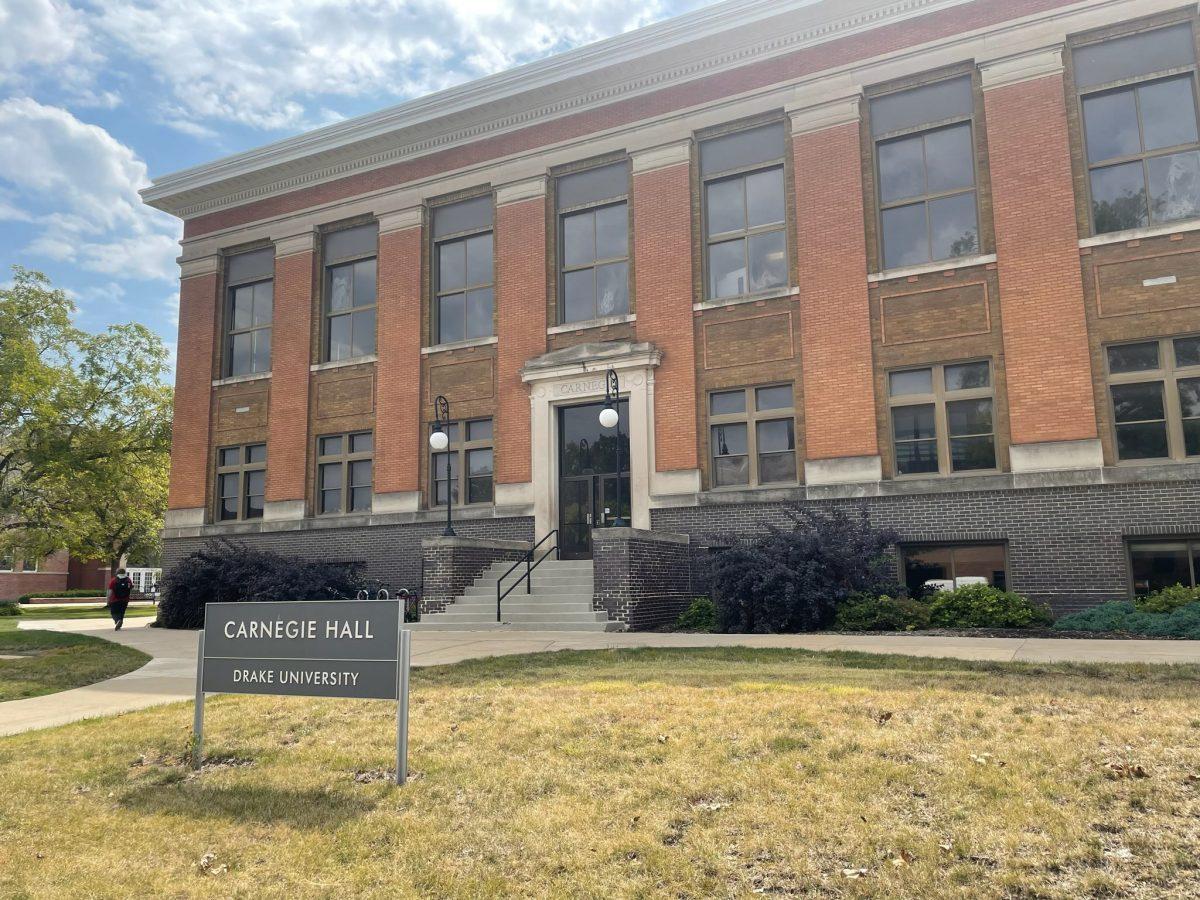In late June, the U.S. Supreme Court struck down universities from using affirmative action when deciding which students to admit. In the aftermath of the decision, affirmative action in college admissions has been compared to college admission policies that give preference to the children of alumni, potential “legacy students.”
In Drake’s admissions process, legacy status could play a role as an “intangible factor,” according to Drake Dean of Admissions Joel Johnson. Legacy status, being an athlete and being an Eagle Scout are all examples of intangible factors.
“Essentially, we want to provide a student of promise a chance so, on occasion, intangible factors may help push a borderline student over the top,” Johnson said over email. “This doesn’t happen often and when it happens, such an admission decision does not result in any other student being denied or left out of admission to Drake or an opportunity to attend.”
Furthermore, no intangible factors are considered until after “a student has been academically reviewed for admission and determined as admissible or borderline admissible,” Johnson said.
Drake doesn’t have a limit on the number of students it admits or enrolls, Johnson said.
“We haven’t had to get to a place where [we say], ‘Okay, we’ve got one spot left,’” Johnson said in an interview. “It’s a good problem for any school to have, but that’s not been our story.”
What Drake has to say about its legacy scholarship
Drake’s Legacy Awards is a $2,500 annual award that is renewable for up to eight full-time semesters. The award honors full-time undergraduate students who are the “children, grandchildren and great-grandchildren of Drake graduates.”
“If your parents are alumni of a certain institution, you already had a predisposition to that institution,” Director of Financial Aid Ryan Zantingh said. “You’re going to grow up knowing about it. I think just seeking to leverage that position of strength is what many schools do in offering legacy scholarships.”
This semester, 222 students are receiving a Legacy Award, according to Zantingh. Since the scholarship is provided by Drake itself, it’s essentially a discount on tuition.
Zantingh said he thinks all academic scholarships have the potential to reinforce privilege. He added that students who grow up with certain advantages, including affluence, will receive more merit scholarships. He sees this as more of an issue than legacy scholarships.
“Those are the students that are going to have the best grades coming into college,” Zantingh said. “Those are the students that are going to score well on standardized tests. Those are the students that are going to get the highest merit scholarships.”
Zantingh said legacy scholarships have the potential to perpetuate privilege. He said the point is well-taken and worth consideration. On the other hand, he said some Drake scholarships give preference to first-generation students, saying they act as a “counterbalancing initiative.”
On its website, Drake defines a first-generation student as a “college student whose parents/legal guardians have not received a bachelor’s degree from a four-year university.”
Zantingh noted that Drake’s legacy scholarship isn’t based on financial need or how hard a student worked. He said it’s “a nod to the [student’s] parent.”
“I understand the strategic reasons behind it,” Zantingh said. “And Drake certainly does need to be strategic in how we structure our aid programs, but not at the expense of also fulfilling our mission to be accessible and affordable to students from all backgrounds.”
One legacy student’s perspective
Elise Ambler’s attendance at Drake has brought her closer to her father, who went to Drake from 1982 to 1986.
“Something that’s been really fun for both me and my dad is to be able to have similar experiences at Drake and in Des Moines,” Ambler said. “I get to text him, and I’m like, ‘Oh, I just went to this basketball game.’ We get to talk about the stats of the game, or [I] tell him about whatever’s happening on campus or building renovations. When I moved into [Goodwin-Kirk], he got to show me where his room was when he lived there.”
Ambler said she feels like she was accepted into Drake on her own merit, not because her father attended the school.
“I don’t think it’s fair for any student to feel like their admittance was impacted because someone else’s parent or grandparent went to the institution,” Ambler said.
Ambler was awarded Drake’s legacy scholarship. She thinks the scholarship helps with enrollment at a time when Drake needs more students.
“But I think at institutions where they’re not struggling for enrollment, where they have an excess of applicants and they’re turning people away, like an Ivy League school, a legacy award or a legacy preference is not fair,” Ambler said. “There are people that are spending their entire formative educational years trying to get into these schools and they’re turned away.”
Last week, The Times-Delphic reported on how the U.S. Supreme Court decision on affirmative action affects Drake.








Paul Francis LeFort • Sep 15, 2023 at 1:56 pm
This is a great piece. Xlnt reporting by the SJMC studnet journos! Admissions, Administration & Student perspective. Well done. With all the noise on the topic from the Ivy League perspective– this is what it means at Drake. Love the comments about Legacy being one part of the Admissions/Financial puzzle (and a small one at that). And the number of incentives/scholarships and focused ways DU helps 1st Gen & students of need attend this institution. Drake isn’t perfect but this is a well-balanced piece.